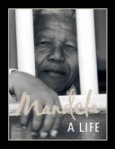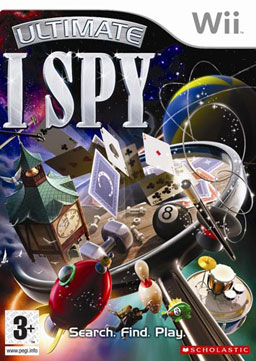South Africa has been relegated to the sidelines by international investors following credit ratings agency downgrades to ‘junk’ status earlier this month. This is a great pity for the country’s marketing efforts as there are many pockets of excellence. For example, South Africans are masters at building yachts for the world’s wealthiest. Here’s a primer on what you need to know about these luxury sailing vessels before you put money into one. By Jackie Cameron
European yacht investor Tamas Hamor only buys South African yachts. He was quickly converted to models produced on the tip of Africa after he spotted his second yacht and realised that learning to sail in the world’s most treacherous seas has given these boat designers and manufacturers a distinct advantage.
‘South Africans are pioneers in catamaran building. They have developed their expertise because at the Cape of Good Hope they are always sailing in windy conditions, and usually at high speed,’ Hamor says of the unpredictable and often stormy seas around Cape Town.
He recently bought his third yacht, a luxury sailing catamaran with four en-suite cabins, from a South African manufacturer. A former property developer in Spain, Hamor decided to turn his love for sailing – and South African yachts – into a business. 
He is selling Western Cape-manufactured luxury yachts to international buyers. A sideline is a yacht charter operation, catering for guests who can afford to pay more than US$20 000/week (about R200 000/week) in the Caribbean. This enables him to cover the costs of maintaining and running his own yachts.
‘I have always enjoyed sailing. I went from constructing houses to constructing yachts,’ says Hamor, who speaks to Signature from a boat show in Miami.
The Xquisite Yachts chief executive officer is hoping a demonstration model, and a try-before-you-buy programme, will attract orders for sail and power catamarans. Hamor could be in for entrepreneurial success, as he has opened his doors to coincide with an uptick in demand for luxury yachts. Sales were hit by the financial crisis in 2008, but there are recent indications that they are starting to pick up.
Laurent Perignon, chief operating officer of luxury yacht specialist Camper & Nicholsons says that the top end of the superyacht sector – vessels longer than 60m – was never affected by the global economic shock. The rich have continued to commission ever-larger high-prestige craft.
However, the market for smaller, yet still very expensive, yachts has only recently started to return to normal. This has followed a big increase in pre-owned boats for sale, he notes.
‘It is still a buyers’ market but things are gradually stabilising. We’re no longer seeing the fire sales and big discounts that we were seeing before,’ says Perignon in a Knight Frank report on how the world’s wealthiest are spending their money. Demand is coming largely from the US and Europe.
Cape Town-based yacht broker Rob Sharp agrees that the worst seems to be over for the luxury yacht market. After a tough period in which many boat-builders and others connected to the yacht industry have been forced out of business, local demand has improved. ‘Last year was our best year since 2008. We are selling sailing and power, mono hull and catamaran in equal numbers,’ he says of the boats his clientele – mostly South African – are favouring.
Many buyers already have yachts and have been upgrading to much larger yachts in the luxury segment, says Sharp. Innovation in ownership models is spurring demand too. The broker cites the example of a buyer who came to the David Abromowitz & Associates offices wanting a power boat for deep sea fishing and left with shares in a luxury yacht moored at the V&A Waterfront.
Although Sharp is undoubtedly a good sales consultant, the buyer realised that his needs and lifestyle were best suited to fractional ownership. Instead of owning a boat outright and not getting full use of it, for a similar amount of money the investor acquired a shareholding in a 17m (57-ft) vessel, which comes with a crew to take care of sailing, catering and ongoing maintenance. ‘He gets to use the yacht for a certain number of weeks a year, which is the most he would have time for,’ says Sharp of the Johannesburg buyer.
How do you decide what type of yacht is right for you? Price is the first consideration.
If you don’t have close to R1m (US$75 000), you are unlikely to be able to buy a share of an entry level luxury boat, while you need many millions of rands to invest in one for your exclusive use. Expect to spend about 10% of the value of your boat each year on maintenance, say yacht owners, while additional costs include boat insurance and salaries for crew.
If you’ve been eyeing one of those 60-ft (18m) yachts that bob around in the waves off Clifton on a Sunday, bear in mind that you are unlikely to get any change out of R25m, says Sharp. A second-hand one might be in reach, though, for about R3,5m.
About R850 000 could get you a piece of a luxury sailing catamaran moored in Mauritius where salaries for crew and the costs of maintenance are more attractive than other jurisdictions. Expect to spend at least R50m to buy a new 85-footer (25m) while R300m is what you are looking at to buy a yacht that is the envy of all other boat owners, says Sharp. He points out that foreign currency exchange rates make South African-built yachts attractive.
Yacht industry stakeholder Clinton Johns, of Cape Town, says your choice will also depend on the type of sailing you envisage. The person who wants to feel the sea spray on his or her face and wants to do the work of managing the boat on the waves is likely to opt for a yacht with sails. ‘A real yachtsman or yachtswoman wouldn’t be seen dead in a motorised boat,’ points out Johns, who has been sailing boats since the age of seven.
Others may prefer to sit back and enjoy the exhilaration of a boat ride, without getting too occupied with the work of getting the vessel across the sea. If you are that kind of buyer, opt for yacht with an engine – and preferably a crew.
Increasingly popular, says Johns, is a hybrid boat. You can put some energy into sailing by helping to hoist the sails, but you can also simply turn on the engine and head off into the big blue.
These days, says Johns, there’s very little sailing that is necessary. ‘Even the yachtsman has an iPad, which becomes part of the equipment, for navigation, looking up weather patterns and more. Technology can even allow you to dock the boat using your finger on the screen – at your peril,’ he adds, wryly.
Your biggest risk on the oceans is yourself, so opt for a yacht that is suited to your sailing expertise, advises Hamor. Also think about where you want to go on your yacht. You will pick a completely different boat if you plan to travel around the world compared to if you want to cruise within 1 000km of port.
‘Moving very big boats from one ocean to the next is not so easy. We find that the people with the biggest yachts usually have more than one; they have one in the Mediterranean, another in the Pacific and perhaps a third in the Caribbean,’ says Hamor.
What you shouldn’t be thinking about when buying a yacht is how much profit you might be able to make later. This is a purchase that, with few exceptions, should be strictly for pleasure.
Sharp notes that a yacht is like a car – it depreciates steadily after you take ownership. ‘It is a lifestyle investment,’ he says. Adds Hamor: ‘I have never met anyone who has made money buying a yacht.’
- Jackie Cameron is a freelance business and financial journalist. This article first appeared in ‘Signature’ magazine. Contact her at jackiecameron.uk@gmail.com for content ideas for your website or magazine.



























